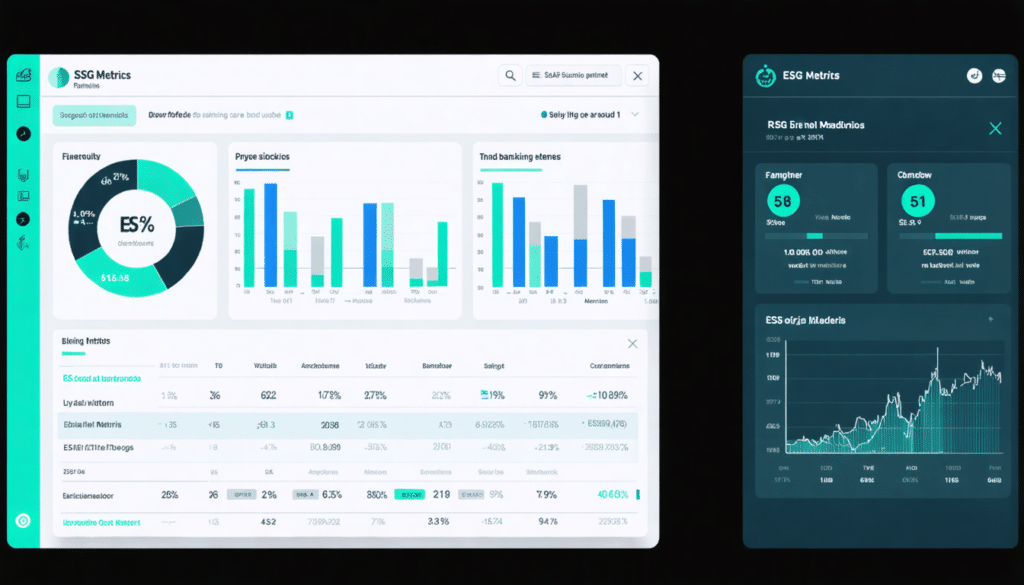The economic trends are evolving rapidly, shaping consumer behavior. In this dynamic landscape, the merging of financial services and technology stands out. The digital age propels this sector to new heights.
At the intersection of innovation and finance, companies like Block capture the attention of investors. With two powerful ecosystems, Square and Cash App redefine the interactions between merchants and consumers. A significant drop in stocks opens interesting opportunities for those looking to diversify their portfolio. Discover why Block could be a safe bet for your fintech investments this month.

In the dynamic landscape of financial services and technology, some companies stand out for their resilience and growth potential despite market fluctuations. Today, we focus on a fintech stock that has attracted investors’ attention: Block. Currently down 80% from its peak, this investment opportunity could prove lucrative for those looking to diversify their portfolio in April.
Table of Contents
ToggleWhy has Block experienced such a drop?
The spectacular drop in Block’s shares (XYZ -6.99%) is explained by several factors. First, intense competition in the fintech sector has eroded some of its market share. According to analysts at Morgan Stanley, Block is losing ground to rivals who offer similar solutions often at more competitive prices or with a greater diversity of services. This market saturation has put additional pressure on Block’s profit margins.
Moreover, although Block’s two main segments, Square and Cash App, have shown notable growth, the stagnant activity of Cash App in terms of monthly active users (57 million) over four consecutive quarters has raised concerns. However, the increasing penetration of Cash App Card accounts indicates a growing adoption of personalized financial services, which could balance this stagnation in the long term.
Despite these challenges, Block has managed to improve its operating profit, turning a loss of $280 million in 2023 into a profit of $892 million in 2024. This significant improvement, coupled with optimistic forecasts from Wall Street for a compound annual growth of 63% in operating revenue over the next three years, bolsters investor confidence in the long-term potential of the company.
Key strengths of Block in the fintech sector
Despite the recent drop in its stock price, Block has several strengths that make it an attractive candidate for investors. First, the duality of its segments Square and Cash App allows the company to serve both merchants and individual consumers, thereby creating two robust and interdependent ecosystems.
The Square segment provides a full range of commerce tools to merchants, facilitating payments and sales management. In Q4 2024, Square recorded a 12% year-on-year growth in its gross profit, with a gross payment volume of $59 billion, up 10% from the previous quarter. These figures attest to the rapid adoption of Square’s solutions by businesses of all sizes.
For its part, Cash App continues to attract users with its simplicity and innovative features in personal financial management. With gross profit growth of 16%, Cash App aims to increase payroll deposits on the platform, thereby reinforcing its essential role in users’ financial lives.
Another strong point of Block lies in its ability to generate controlled operating costs while increasing revenues. The rigorous management of expenses and strategic investments in key areas such as Bitcoin and cryptocurrency infrastructure position Block as a versatile player in the fintech sector.
Growth prospects and market opportunities
The growth prospects of Block are supported by substantial market opportunities. At the investor presentation for the fourth quarter of 2023, the company’s management highlighted a total addressable market (TAM) of $130 billion for Square and $75 billion for Cash App. These figures illustrate the scope of development possibilities in financial services and fintech.
With the ongoing increase in the digitalization of financial services, Block is well-positioned to leverage this trend. The growing demand for innovative digital financial solutions, such as mobile payments, online wealth management services, and cryptocurrency applications, gives Block significant room to expand its operations and capture an even larger market share.
Furthermore, Block’s initiatives in Bitcoin and cryptocurrency could create new revenue streams and attract a diverse investor base. While some investors may be hesitant about Block’s direct involvement in the cryptocurrency market, the company’s long-term vision could translate into significant value creation.
In parallel, the recent fundraising efforts in the fintech sector, such as the $500 million raised by Ribbit Capital, and the expansion of Intuit with an additional 115,000 square feet, demonstrate the vitality and resilience of the sector. Additionally, the IPO of Klarna rekindles hopes for British fintech listings, increasing the attractiveness of the sector for global investors.
The risks associated with investing in Block
Like any investment, buying shares of Block comes with risks that are crucial to assess. One major risk lies in the intensifying competition. The fintech market is becoming increasingly saturated, with new players regularly entering and offering disruptive innovations. This competition could limit Block’s ability to increase its market share or maintain its current margins.
Another potential risk is Block’s dependence on its main segments, Square and Cash App. If either of these segments were to encounter operational difficulties or lose their appeal among users, it could have significant repercussions on the overall performance of the company.
Moreover, Block’s involvement in cryptocurrencies exposes the company to the volatility of the crypto markets. Major price fluctuations in Bitcoin and other cryptocurrencies can impact Block’s revenues and valuation. Furthermore, government regulations regarding cryptocurrencies are constantly evolving, which could impose additional constraints on the company.
Finally, the recent drop in Block’s stock price, while potentially an opportunity, reflects a negative market perception that could persist if growth trends do not reverse quickly. Investors should therefore closely monitor Block’s financial indicators and strategic initiatives to assess the viability of this long-term investment.
How to invest wisely in Block in April
For those considering buying shares of Block in April, a strategic approach is essential. Here are some tips to maximize the chances of success in this investment:
- Thorough financial analysis: Examine Block’s recent financial statements, focusing on revenue growth, profitability, and cash flows. Good financial health is a key indicator of the company’s ability to weather market storms.
- Portfolio diversification: Don’t bet everything on a single stock. Diversify your investments across different fintech companies to spread risks and increase opportunities for gains.
- Monitoring market trends: Stay informed about the latest trends and innovations in the fintech sector. Participating in specialized forums and following analyst reports can provide valuable insights about future market movements.
- Risk assessment: Identify and evaluate potential risks associated with investing in Block. Ensure you are comfortable with the level of risk before making a decision.
- Consultation with a financial advisor: Before proceeding with an investment, it may be beneficial to consult a financial expert for personalized advice tailored to your personal situation.
By integrating these strategies, investors can approach the purchase of Block shares with increased confidence and better preparation for the uncertainties of the market.
Expert testimonials and analyst opinions
The opinions of experts and analysts play a crucial role in the decision to invest in stocks like Block. For instance, Wall Street analysts predict continued revenue growth for the company, thereby reinforcing Block’s long-term outlook. Additionally, the recent Q4 2023 investor session revealed optimism about market opportunities, supporting the belief that Block can capitalize on its current position for future expansion.
Some analysts emphasize that Block’s current valuation, with an anticipated P/E ratio of 12, makes the stock particularly attractive. This lower valuation means that Block is potentially undervalued compared to its growth potential, thus offering favorable leeway for investors looking to enter the market at a good price.
Furthermore, fintech experts have noted that Block’s strategy of integrating emerging technologies, such as Bitcoin, and developing innovative solutions for users, could well position the company to face future challenges. This technological and proactive vision is often cited as a differentiating factor that could help Block overcome current obstacles and thrive in a competitive environment.
Additionally, Block’s initiatives in supporting entrepreneurs and innovative projects, as mentioned in articles such as the success story of Michael Wystrach, demonstrate the company’s commitment to fostering innovation and supporting a dynamic community of creators and entrepreneurs. These actions enhance Block’s reputation as a key player in the development of the fintech sector.
The impact of recent developments in the fintech sector
The fintech sector is constantly evolving, with many recent developments influencing investment opportunities. Major events, such as the $500 million fundraising by Ribbit Capital and the expansion of Intuit with a significant increase in their infrastructures, demonstrate the vigor and resilience of the sector. These movements indicate a continued confidence among investors in the potential of fintech.
The IPO of Klarna has also reignited interest in British fintech listings, showing that even traditional markets recognize the potential of these innovative companies. Moreover, the fastest-growing fintechs in Europe for 2025 highlight the diversity and global expansion of the sector, thereby offering a wide range of opportunities for international investors.
These positive developments reinforce the idea that the fintech sector continues to grow and evolve, providing robust investment opportunities despite the individual fluctuations of stocks like those of Block. By closely following these trends and adapting their investment strategies accordingly, investors can take advantage of the favorable momentum in the fintech sector.




